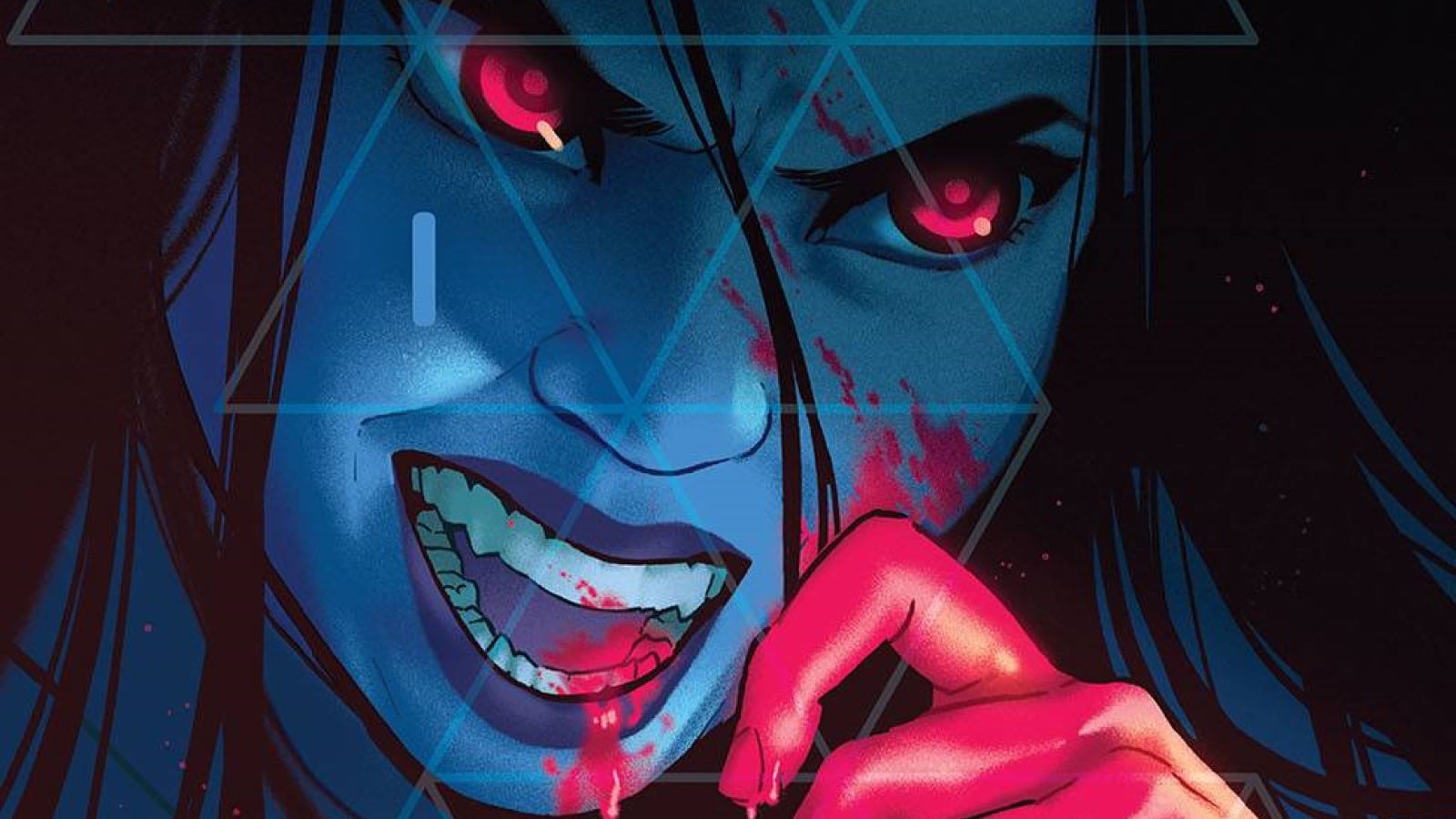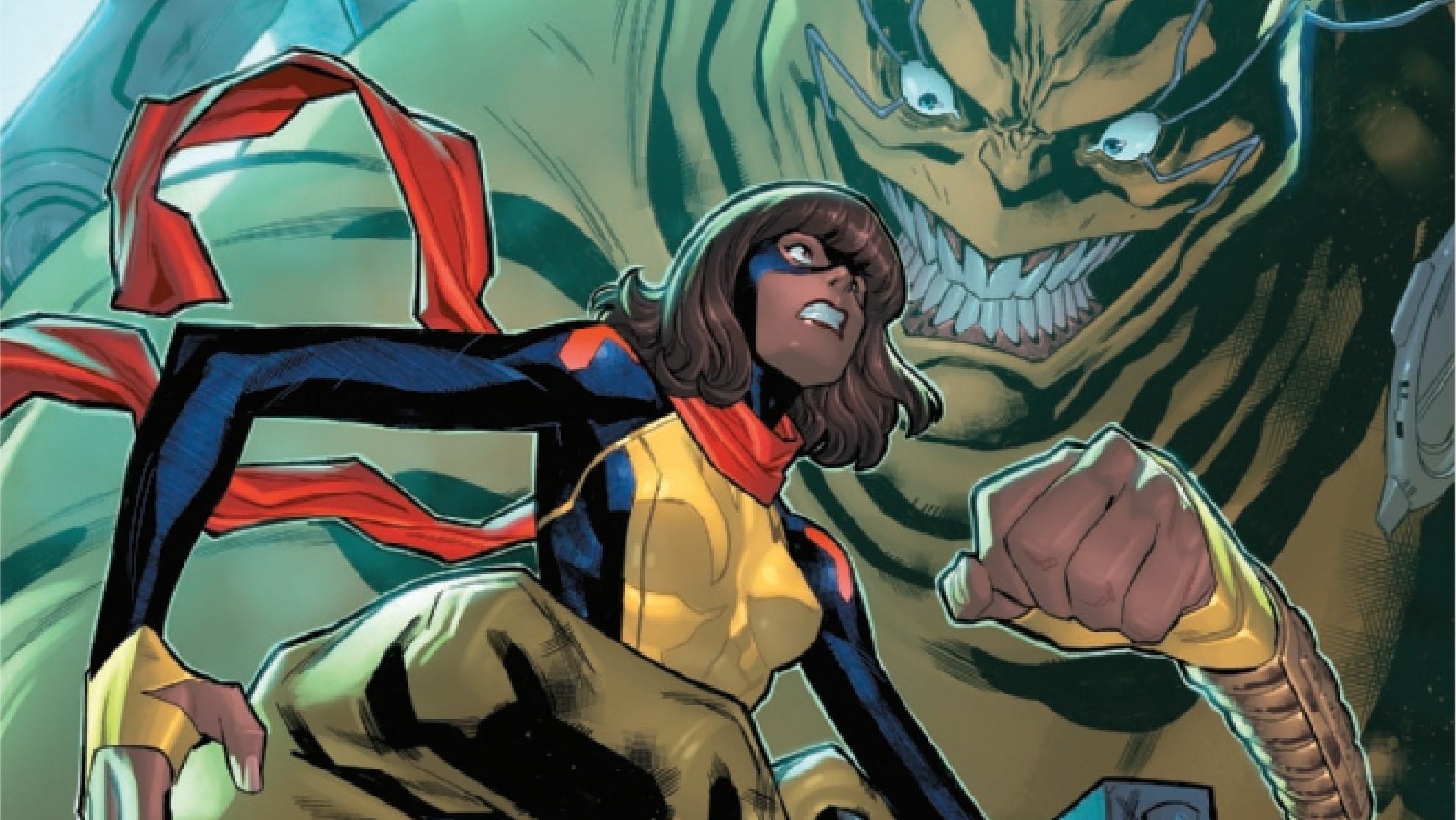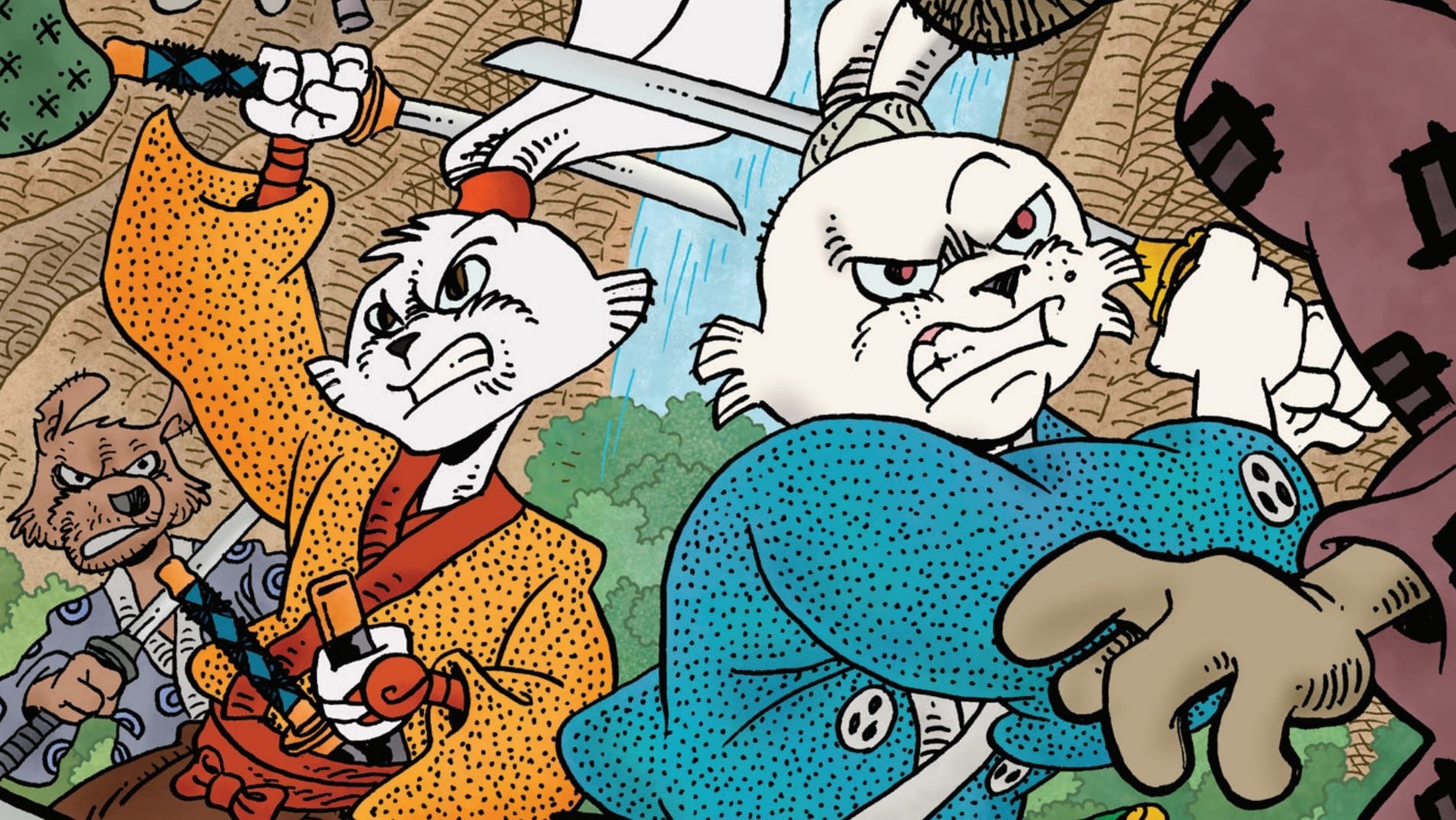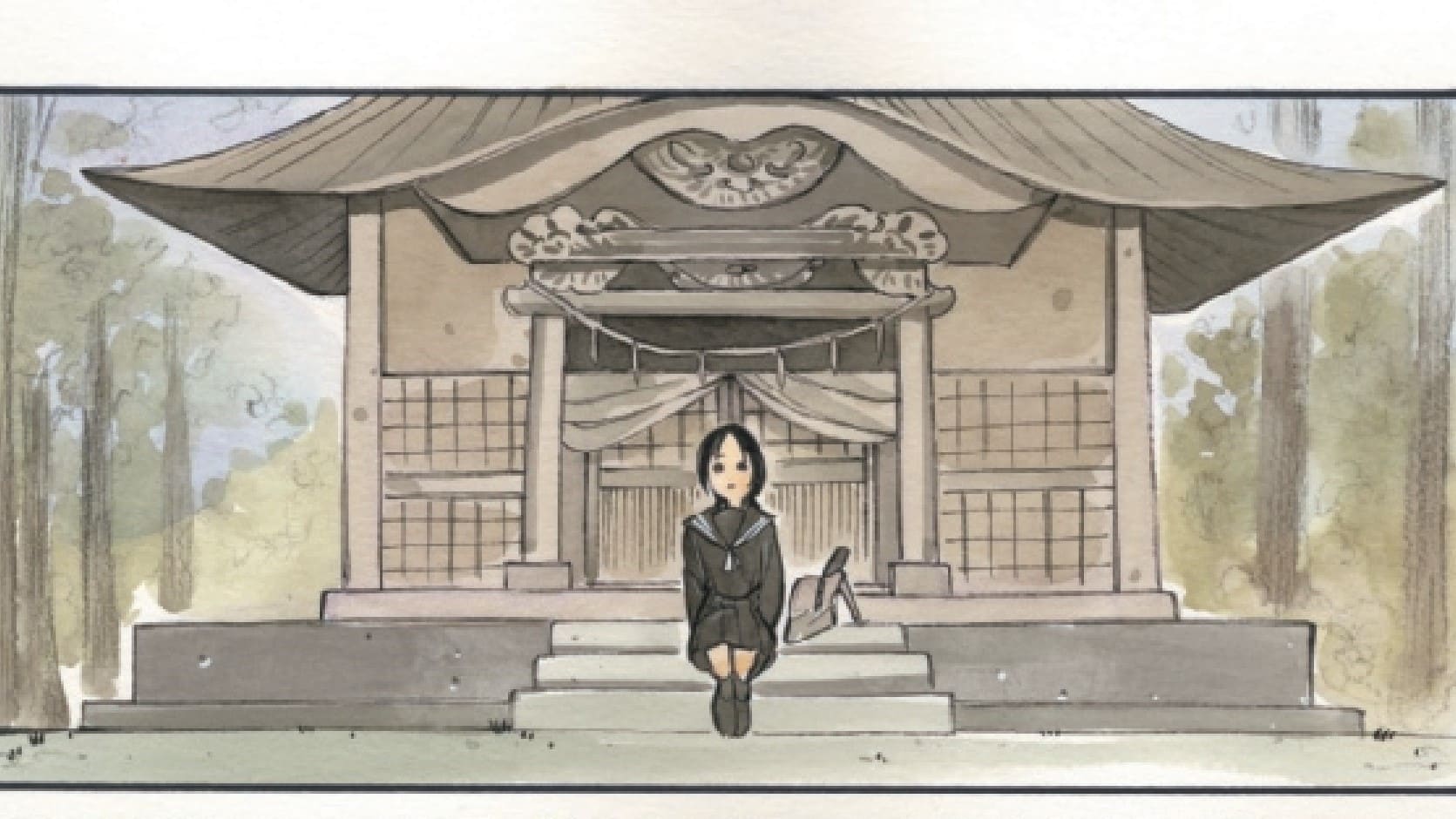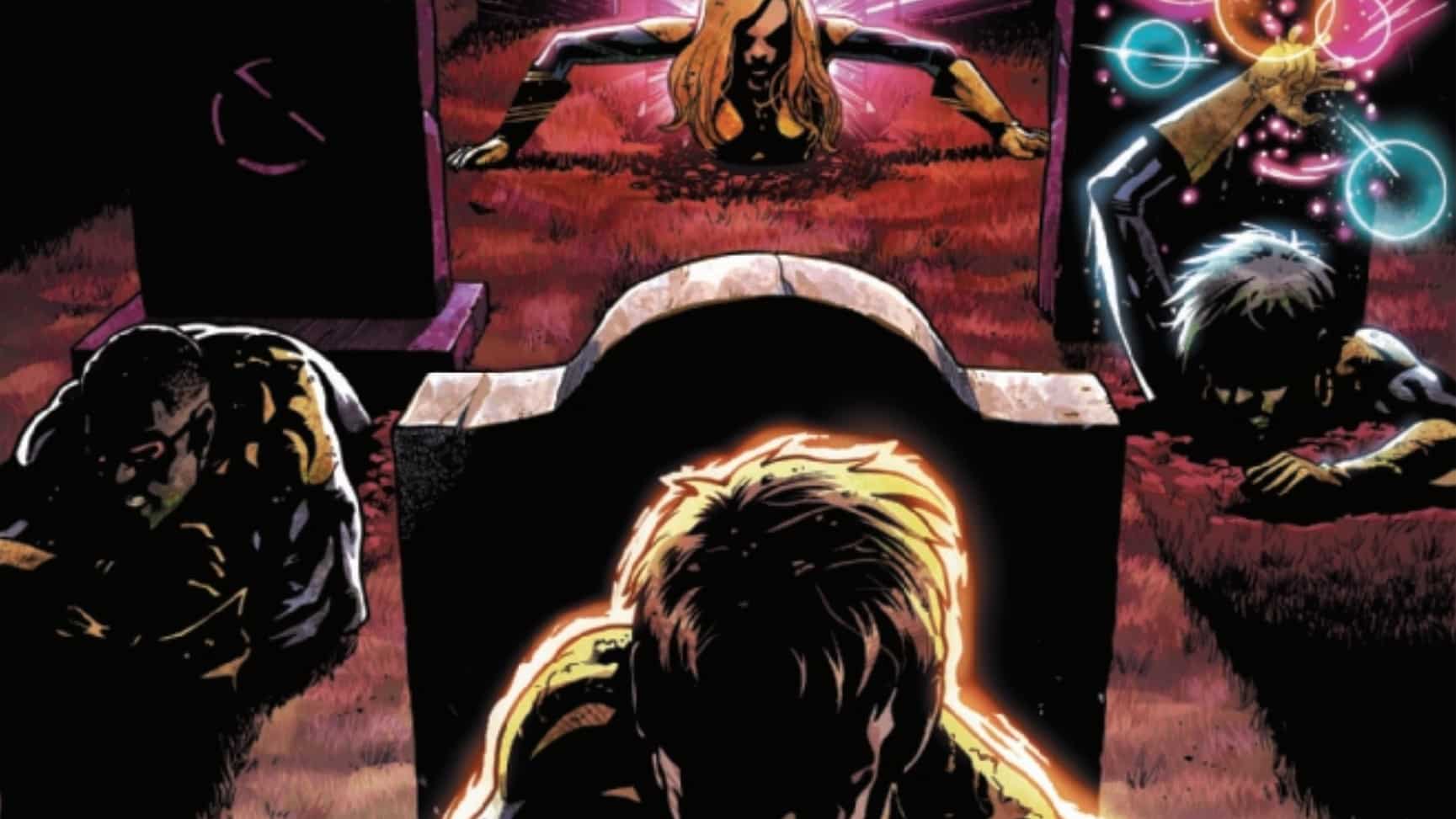As writer Kieron Gillen, artist Stephanie Hans and letterer Clayton Cowles’ fantasy epic delves toward its finale, our gang of hardy adventurers learns some harsh truths about the world of DIE and about The Fallen in issue #17.
Mark Turetsky: Hey, Corey! We’re back in the dungeon again, and now our trusty gang has their own Virgil to lead them through the Inferno, none other than Randolph Carter … err … HP Lovecraft, I guess.
Corey Smith: Either way, Mark, he’s far from the most long-lasting of guides! After last month’s issue, I almost broke down and started reading Lovecraft’s work (against the advice of everyone in the CXF Slack, also, everyone else I mentioned it to), and I’ve gotta say, I’m glad I didn’t spend the time.
Wherein All Is Revealed. Kinda?

Mark: If the conscious echo of H.G. Wells was sexist and dismissive toward Ash in a patronizing way, our boy Lovecraft doesn’t even try to hide his condescension. He just openly chuckles at our gang. Disrespectful, if you ask me. But before we get to that: Did I not totally call the TPK (Total Party Kill) thing last month? It’s the title of the issue!
Corey: You absolutely did! It’s the type of thing that’s bound to happen eventually in a “game” like this, but I certainly wasn’t expecting it to be the driving force behind the mystery of DIE! How did you feel about that big reveal?
Mark: To be honest, I’m still processing precisely what’s new about this reveal. We already knew that when the dice reach the center of DIE, that the world was going to end, but the new information about the game worlds being consumed by eldritch millipedes is certainly new. That and the revelations about Lovecraft’s … revelation, that he was ultimately inspired by visions of the future, where DIE will consume the Earth.
I did especially like the bit about the many-angled non-euclidean shapes being a pan-dimensional projection of the platonic solids (the shapes of the common D&D dice set). It was very clever on Gillen’s part. If you’ve ever seen a 2D or 3D projection of what a multidimensional shape (like a tesseract) looks like, this is pretty close to that.
Corey: It really was a clever bit — when I saw that part I had to put the issue down for a minute to process it. I’ve seen multidimensional shapes referenced in a few things, and while I get it on a conceptual level, visually they just look like a mess to me. Seeing the breakdown in this issue of “oh, they’re multiple shapes overlapping” was pretty damn cool.
Mark: Yeah, and it’s nice to see the party actually working together to combine their skills in a problem-solving context instead of just combat. It’s so common for a game like D&D to mostly involve combat skills, and seeing those skills applied to solving a puzzle like “extrapolate the 3D shapes as dreamed by HP Lovecraft. Enhance. Enhance.” is pretty fun.
Corey: It was definitely a refreshing change — too often non-combat uses for powers fall by the wayside, but Gillen did a fantastic job of showing that non-combat doesn’t mean non-conflict. The second Ash let go of her control of Sol, I was worried some bad stuff would go down, and I was not disappointed. The limitations and rules of each powerset have been one of the most fascinating parts of the book, and seeing them come into play in that scene was really satisfying!
Mark: Speaking of manifestations of power sets, did you notice that Matt’s weapons were silent for this entire issue? You’d think the rage maul would have something to say after Isabelle ganked Lovecraft.
Corey: I hadn’t picked up on that, but it’s a good catch! It’s definitely concerning that he didn’t seem to have much reaction there — an Emotion Knight who’s growing numb sounds like a hell of a liability. I’d say hopefully it won’t come back to bite them, but I think we both know what sort of story this is. We’ve been seeing Chuck’s luck run out more and more as he grows more serious, after all, and Ash’s powers have obviously had their limits tested throughout most of the story.
Mark: And don’t forget that Angela has to constantly expend some of her energy keeping Molly in line (and has probably doomed the world because of that).
Back to Matt’s emotions: it’s interesting to me that Plutchik’s wheel of emotions, which Gillen based his emotional game system on, places disgust between grief and anger, which are the two emotions Matt is playing with now, though I don’t know how much disgust as an emotion plays into Matt’s characterization. But Gillen brings up disgust in his essay at the back of this issue. He calls it “the uranium in the bomb of [Lovecraft’s] fiction.”
It reminds me of a study conducted a few years ago that showed that in general, people with conservative political ideologies tend to have stronger physiological reactions to disgusting imagery than more liberally minded people. Now, I’m not sure about the current thinking on this, if it’s been refuted or not, but it’s certainly interesting to think about in relation to Lovecraft’s social and political views.
Corey: I think a good chunk of Matt’s feelings, both in this arc and the previous, have been disgust. Whether it’s at the actions of his teammates, his own decisions or just the situations they’ve been placed in by the game itself, I’d say “disgust” sums it up. That study is an interesting read — it’s not something I had seen before, but if it is accurate, it definitely makes me think of Lovecraft. While I think he’s utterly odious as a person, and have no interest in going through his work, I certainly can’t deny the shadow he’s cast over fiction, and to a large extent, culture as a whole. The vibe I’ve gotten is that his work was less influenced by fear than outright bigotry. In his life, in his writing and, of course, in his cat-naming, he wielded that bigotry like a Disgust Knight made flesh, leading to a large subset of nerds that treat the mere concept of diversity like an eldritch horror in and of itself. I’m not sure if that’s an interpretation that Gillen intended (Again, I haven’t done the reading), but it’s certainly one that rings true to my ears.
Kill The Messenger

Mark: I think a telling thing is that Gillen has Lovecraft’s shade say something vaguely racist before he gets killed. I don’t think he’s actually saying you should go out smashing racists with a war hammer, but it definitely gives the reader an opportunity to say, “Yeah, fuck that guy,” and maybe not feel too bad about him getting killed.
It’s also telling that this is the thing that sets Chuck off. He’s witnessed them killing tons of Fallen, who, we learn, are real people (or fake people who are as real as any of them, as he puts it), but a cold-blooded murder is too much for him. Which, you know, in and of itself has a lot of metanarrative implications, so it’s pretty valid that it’s the fiction writer of the group who makes the argument.
Corey: I’ll admit, I’ve always been pro-bigot slapping, so I’m probably the wrong person to look to for any sympathy for a racist’s shade. That said, I get where Chuck’s coming from — he wasn’t joking when he said somebody had to be Dour, and he’s got plenty of reason to be. You hit the nail on the head (too soon?) when you pointed out that this killing was cold-blooded, though. Combat is one thing, strategy is another, but from the group’s immediate perspective, it served no purpose beyond screwing them over at the Dreamer’s request. Beyond that, the party has consistently argued how seriously they should take the world of DIE, and killing in cold blood after it seemed like they had finally reached a consensus has to be frustrating. It’s also worth pointing out that of all of them, Chuck’s the one who knows his death is coming up soon — “When we exist, we exist” is a thought that he’s clearly had to spend a lot of time considering.
Mark: And Hans renders the act of murder as a generalized explosion of color, with The Dreamer’s pinks and violets meeting with the dungeon’s reds. It reminded me of Jamie McKelvie and Matt Wilson’s head explosions in the first issue of The Wicked + The Divine, where moments of extreme violence get rendered as almost reality-breaking abstractions. It mirrors how witnessing a sudden, terrible act of violence feels on a subjective level. The world feels like it’s one thing one second, and then that concept of the world that you’ve been holding in your head just gets obliterated the next.
Corey: Does a “blows my mind” joke still count as too on the nose if the nose is no longer attached to the face? These are the important questions I find myself asking every time I pick up a Gillen book.
The more I think about it, the sudden violence of Lovecraft’s death is a fun contrast to some of the more prolonged deaths going on right now. There’s Chuck’s illness, obviously, but Sol’s Fallen state feels like a slow march to oblivion, and I’m sure that from Angela’s perspective, the revelation that her daughter’s eventual undead turn may very well be inevitable has to feel the same way. I wonder, with all the horrors to come, whether Lovecraft’s shade’s quick demise was a mercy he may not have deserved.
Mark: And why does The Dreamer want him dead so immediately? Is it purely to fuck with the party? I mean, that’s likely it, right?
Corey: If it’s for their benefit in any way, I’ll be shocked!
Do Not Look Up Roko’s Basilisk; the Fate of the World May Depend on It!

Mark: Did you look up Roko’s Basilisk that Gillen mentions in his essay at the back?
Corey: I’ll be uncharacteristically honest here and admit that I went through a brief, embarrassing, rationalist phase when I was younger, so I was already familiar with it. I’ll also admit that when I read the mention, part of my brain dusted itself off and yelled, “You bastard, the point is not to think about that!”
Mark: Oooh! The plot thickens! I spent some portion of the late aughts in groups that intersected slightly with the Less Wrong rationalist crowd, but dropped out pretty quickly. But, for our readers who might not be familiar with the concept, I found this Slate writeup pretty illuminating on the subject. In extremely simple terms, imagine there’s a malevolent AI in the future, who will punish you if you don’t work to create it. It can even punish you in the present, because, spoiler alert, there’s a good chance that you are actually a simulation that it’s running. And by thinking about it, you’ve made it more likely that it will be created. And right now I’m doing irreparable harm to the universe by discussing it.
But it seems to me a lot of DIE is compatible with Simulation theory. It would explain a lot about the possible predestination that the characters are facing, and why precisely the world has such a techno-horror façade. Heck, we know for a fact that, as a work of fiction, it literally IS a kind of simulation. It’s just a matter of how metafictional Gillen wants to get with it (and it’s not like he’s shied away from such things at all in his other major works).
Have you read any Iain M. Banks, specifically the Culture novels?
Corey: No, but I’ve been telling myself I’ll get to them for the better part of a decade now! Do you see a connection?
Mark: There’s one book in particular that this calls to mind, called Surface Detail. In it, a hyper-advanced alien civilization discovers there’s almost certainly no afterlife, but, for cultural reasons, really needs there to be a Hell in order to keep people in line. So, being a hyper-advanced civilization, they’ve mastered consciousness uploading, and they create their own Hell as a kind of eternal prison for people they’ve decided deserve damnation.
It’s a frankly horrifying idea, but it’s the sort of thing you know someone here on Earth would try if we had the technology. Anyway, it’s not a 1:1 analogue for Roko’s Basilisk, but it’s similar, and might also be an inspiration for DIE.
Corey: … Yeah, that sounds distressingly believable. I can definitely see the thread now that you’ve said that, though — what is DIE if not collaborative hell-building?
Mark: The friends worlds we made damned along the way? Anyway, we should talk about the last few pages of this comic.
We get a return to straight-up Tolkien pastiche in the final scene. We have our Watcher In The Water, our elven “friend” door. It even made me realize that in the last issue, they tried to go up through the mountains and decided to go through an underground tunnel instead.
What this tells me is that hope is not lost. We might be in a Lovecraft story, but we also might be in a Tolkien story where the world gets redeemed, even though all seems lost. It’s like Gandalf says, “All we have to decide is what to do with the time that is given us.” Or, if you’re Matt, “If our moves are preordained, we make the moves.”
That, and I can’t be the only one who saw that panel of the door opening and expected Sol and Ash to kiss, right?
Corey: I’m firmly onboard the Ash/Izzy Express, but you aren’t alone at all. It’s been a long time since I’ve read Tolkien, so a lot of the subtleties are lost on me, but I figured out the “speak friend and enter” gag a couple of panels before it happened, and it absolutely brought a smile to my face. As much as the world is a brutal hellscape, there are still moments that remind you that it started with some friends playing a game that cribbed from the stories they loved. It’s depressing, but it’s sweet at the same time.
Mark: I think it’s apt that in the brief bios of the party at the beginning of each issue since #2, Ash’s always has “Sol’s best friend” (though I can’t read this without thinking of Mark in The Room repeating “Johnny is my best friend” at every opportune moment, but that’s me). Heck, the very first caption box of the series has Ash narrating, “Solomon was my best friend.” This whole series seems to be building toward Ash’s coming to terms with her gender and sexual preferences.
Corey: Ooh, very good point. Ash’s portrayal is so obviously queer that I honestly forget that the specifics are consistently, firmly and pointedly avoided any time the topic comes up. If you don’t mind me asking, what’s your take on the character’s identity?
Mark: Well, I was just rereading a scene in issue #10 involving Dominic and his wife, Sophie’s pregnancy. Ash refers to her “fantasy life” as separate. And it’s so clear that for her, in a very real sense, it’s not fantasy: She’s lived whole years of her life as a woman. But it’s a really thorny issue for me to discuss as a cis person, since this is outside of my lived experience. Reading this comic, it seems so clear to me that Ash is a trans woman, but then again, I don’t want to put labels on people who aren’t me, even if they’re fictional, you know?
Corey: That’s entirely fair! If I’m being honest, Ash’s narration and avoidance of the topic in the first issue resonated (“big mood” and all that). I immediately took it as either genderfluid or agender, and then promptly bottled that shit back up to not think about, and mostly avoid pronouns altogether. It’d definitely be an easy read to view Ash as a trans woman, and I think it’s probably the take most supported by the text, but I can’t remember if Gillen has gone on record either way. If he makes the mistake of admitting he’s read us again this month, I might just have to ask him!
Mark: Corey! Let’s not abuse the nice man who sometimes links to reviews!
Corey: Fine, I’ll play nice, I suppose!
Random Throws of the DIE:
- Quoting Alan Moore by way of Garth Marenghi’s Darkplace is *chef’s kiss*
- The freshly made Fallen is saying “HUNGER” in binary. We translated it so you don’t have to!
- “Total Party Kill” outside of being a gaming term could also theoretically mean something analogous to a buzzkill. “Mark tried to make us play Settlers of Catan. What a total party kill!”
- I try not to read into things so much, but I always try to consider at what point a story’s narrator is telling us the story. If Ash is around telling us this story in the past tense, then maybe the world doesn’t end?
- Or, more depressingly, the story is being told by Ash’s own inevitable shade.
- Wow, Corey, you’re being a total party kill!

